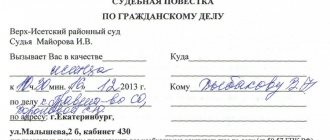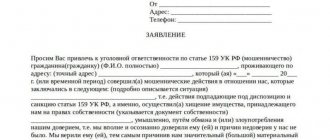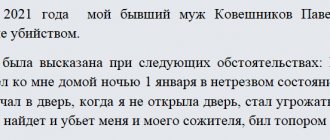Limitation periods
In the event that the claim was drawn up as part of a criminal case, the statute of limitations is equal to the limitation period for bringing the attacker to criminal liability.
If the claim was drawn up regardless of whether a criminal case was initiated or not, the period for it is 3 years from the moment the victim learned that he had suffered material harm.
If the claim was drawn up after the consideration of the criminal case, according to its results, then the period is 3 years from the date on which the court verdict entered into legal force.
How is it determined?
The legislator directly links the statute of limitations and the category of crime. Crimes, by their nature and the inherent degree of danger to society for each of them (and, accordingly, the maximum sentence in the form of placement in a prison camp) are divided into four categories.
For each of them, the period during which the perpetrator of illegal actions can be brought to criminal liability is clearly named. Article 15 of the Criminal Code of the Russian Federation speaks about the categories of crimes.
Statutes of limitation and issues of exemption from liability in connection with their expiration are announced in Article 78 of the Criminal Code of the Russian Federation:
- Acts of minor gravity are crimes committed intentionally or through negligence, for which punishment is provided for no more than three years in prison. For such crimes, the statute of limitations is two years.
- Crimes in the category of medium gravity are acts that were committed with one type of intent or another and for which the maximum punishment does not exceed five years in prison. This group also includes reckless crimes, for which the law prescribes punishment of more than three years of isolation of the convicted person from society. The statute of limitations after the commission of such an act is calculated at six years.
- Crimes classified as serious can only be intentional . Punishable by up to ten years in prison. The period for possible prosecution of the culprit from the moment the criminal act was committed is 10 years.
- Particularly serious crimes are also committed only with intent. They are subject to strict sanctions in the form of imprisonment in correctional institutions (PI) for a period of more than ten years or even more severe punishment. The statute of limitations for such crimes, of course, is the longest and is fifteen years.
Reference . If we are talking about crimes for which the law has established life imprisonment as a sanction, then the issue of statute of limitations is determined only by the court.
If the court does not consider it possible to release the offender from criminal liability due to the fact that many years have passed, then life imprisonment in this case is excluded (the punishment will be expressed in imprisonment in the prison for a certain period).
In addition, in Part 5 of Art. 78 of the Criminal Code of the Russian Federation lists a number of articles for which statutes of limitations are not applicable in any case . These are crimes against public safety (armed rebellion, terrorism, encroachment on the lives of government or public figures, etc.).
From our separate articles you will learn how penalties are classified and what liability is provided in cases of theft:
- money and documents;
- state property and budget funds;
- weapons and ammunition.
For theft
The limitation period for theft is regulated by Art. 158 of the Criminal Code of the Russian Federation.
Definition of the term "theft"
Theft is the theft of someone else's property, or rather its removal without warning the owner.
There are different types of thefts. For example:
- theft that occurred during entry and stay in someone else's home;
- theft, during which the owner of the property was harmed;
- theft committed by a group of persons;
- stealing items from the owner's clothing or bag.
Theft must meet the following criteria:
- have a selfish character;
- the owner of the property should not know about the incident;
- be an illegal act;
- cause damage to the owner of the property.
For ordinary theft, the term is two years, for major theft - 10 years.
Is it possible to pause
It is naive to believe that you can hide from investigation and avoid responsibility. While the criminal is hiding, the statute of limitations is “frozen.” When a criminal who was hiding from the investigative authorities is caught or surrenders, the calculation of the term is resumed. Also, the limitation period under Article 158 of the Criminal Code of the Russian Federation stops if the violator evades paying the fine.
It does not matter how exactly the violator evades execution of the decision: actively or passively. The countdown starts from the moment a person is charged or sentenced.
Important! You need to file an application to initiate a criminal case, and separately file a civil lawsuit to recover damages. This claim should be sent to the place of temporary or permanent registration of the guilty person.
There are peculiarities in calculating time limits in case of theft and theft of a car. When a criminal who managed to steal a car goes into hiding, the statute of limitations is suspended for this time. If a person takes possession of a car for disassembly into spare parts, appropriation and alienation to third parties, this is theft, and in other situations, it is theft. When stealing a car, the criminal does not pursue the goal of appropriating the vehicle in full or in parts. The period of prosecution depends on which article of the Criminal Code the violation is classified under.
Samples
Theft reports are the same no matter where they are sent. Only the content of the main descriptive part changes depending on the circumstances under which the theft was discovered and what exactly was stolen. You can use samples provided on the Internet.
If the application is drawn up at the police department, then it can be filled out by an employee of the Ministry of Internal Affairs himself, based on the words of the injured party. However, it would be more correct to entrust the writing of this document to a lawyer. A professional will indicate as many significant details as possible, remove unnecessary information, and eliminate inaccuracies.
When is the best time to write an application?
Theft is a type of crime that is more likely to be solved if it is reported to law enforcement as early as possible. As soon as the fact of secret theft is discovered (for example, upon arrival at your own apartment), you must immediately report it to the relevant structures. Moreover, a call to the emergency telephone line is enough for professionals to arrive and conduct an initial inspection of the scene. It is then that you can immediately submit the necessary application, if the victim is able to do so. Otherwise, the information will be taken from his words and compiled accordingly by law enforcement officials. Later, when the victim comes to his senses and remembers details that are important for a comprehensive consideration of what happened, you can supplement the information transmitted to the police.
How to make an application correctly?
You can report a crime to the police either orally or in writing. The police officer will document the oral appeal in a protocol. This document is signed by the applicant. He is warned in advance about criminal liability for knowingly false denunciation, about which a corresponding note is made in the protocol.
If the applicant himself cannot be personally present when drawing up the protocol, for example, when a report of theft is transmitted via telephone, his message is indicated in the report of the police officer who accepted the statement (Article 143 of the Code of Criminal Procedure of the Russian Federation).
The document must contain significant information:
- The header indicates: where information about the crime is transmitted and by whom - full name, residential address (mailing address) of the applicant, contact information - telephone number, email address. It is not necessary to write your full name, position, title of head of the police department, address of the location of the structural unit, but you must indicate the name of the department itself;
- in the center - the name of the document;
- the main part describes in detail where, when and how the theft was discovered, what was stolen, and what value the stolen property has, as well as all the details that may help solve the crime - possible witnesses, the presence of external video cameras nearby, etc. ;
- in the final part - a request to find the criminals and bring them to justice;
- inventory of the attached material evidence (if any) - copies of recordings from external cameras, documents confirming the value of stolen property, etc.;
- date of compilation and signature of the applicant (with transcript). Signing a report of a crime by another person is not allowed (Article 141 of the Code of Criminal Procedure of the Russian Federation).
Anonymous requests are not subject to mandatory consideration. In addition, an applicant who does not leave his postal address will not receive notification of a decision made based on the information received.
Note!
An anonymous statement cannot become the basis for initiating a criminal case.
Terms of consideration
In total, a theft statement submitted (directed) to the police can be considered for no more than thirty days. The period begins to count from the moment the application is registered. During this period, a decision will be made to initiate or refuse to initiate a criminal case. In cases requiring additional verification of information, sending requests to various structures and organizations, the review period may be extended, but not more than thirty days.
Whatever the decision of the police officers, the applicant must be sent an official decision on the appeal (Federal Law “On the procedure for considering appeals from citizens of the Russian Federation” dated May 2, 2006 No. 59-FZ).
Note!
The body of inquiry, the investigative structure are obliged to accept for consideration, verify the report of a committed (imminent) theft and make a decision no later than 3 days from the date of receipt of the report (Part 1 of Article 144 of the Code of Criminal Procedure of the Russian Federation).
Where to report theft?
If you discover a theft and there is a chance to catch the criminal in hot pursuit and identify evidence of the crime, immediately call the police. This can be done from a landline phone using the well-known number 02; any mobile phone has an emergency number. When you call, a police squad will arrive and take all necessary actions.
Don't be afraid to report your suspicions to the police. Only a deliberately false call is punishable when a person initially understands that he is telling a lie (Article 19.13 of the Administrative Code - a fine of one to one and a half thousand rubles).
If the theft occurred, for example, in public transport, or a long time has passed, or there is no way to contact law enforcement agencies by phone, you should go to any police station. The duty officer is obliged to accept information about a crime committed, regardless of whether it is subject to investigation on a territorial basis by this department. You must be given a coupon notification of acceptance of the application.
You can contact law enforcement agencies electronically through the website of the Ministry of Internal Affairs or by regular mail (preferably by registered mail with notification).
Note!
Knowingly false denunciation of theft is a criminal offense.
A person may be liable in the form of:
- a fine of up to one hundred twenty thousand rubles;
- a fine in the amount of salary (other income) for a period of up to one year;
- compulsory work up to four hundred eighty hours;
- correctional labor for up to two years;
- forced labor for up to two years;
- arrest up to six months;
- imprisonment for up to two years.
If someone is knowingly falsely accused of committing a felony theft, the applicant may be liable for:
- a fine in the amount of one hundred thousand to three hundred thousand rubles;
- a fine in the amount of salary (other income) for a period of one to two years;
- forced labor for up to three years;
- imprisonment for up to three years.
If a person, having provided knowingly false information about a theft committed and accusing someone, provided artificially created evidence of the accusation, he may be punished:
- forced labor for up to five years;
- imprisonment for up to six years.









